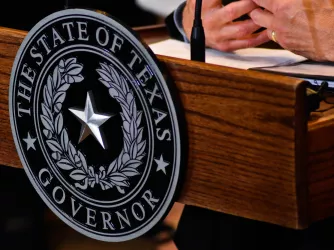Table of Contents
Discussion at USC Ignores Serious Free Speech Concerns on Campus
Rachel Bracker of the University of Southern California's (USC's) student newspaper the Daily Trojan reported on a "campus conversation" on "free speech," held at USC last Tuesday and led in part by University Counsel Stephen Yamaguchi. Unfortunately, Bracker's report suggests that many students left disappointed because they still didn't possess a clear understanding of their free speech rights as USC students.
Sherry Wang, a freshman majoring in creative writing, said:
I came here because I wanted to see what the campus's actual policies were, but I felt like the information they gave was actually kind of vague.
Perhaps the speakers didn't delve into USC's policies because the speech restrictions at USC actually deny students their right to free speech. USC has several policies that restrict students' ability to communicate freely. Take, for example, USC's University Policy on Sexual Harassment (.pdf), which forbids (in the context of an otherwise fairly reasonable definition of harassment) "verbal sexual harassment" in the form of
written or spoken epithets; derogatory or sexually suggestive comments or slurs about an individual's body or dress; questions or statements about sexual activity, other than in an appropriate context such as academic study of such activity; sexual jokes and innuendo; whistling or suggestive sounds; or persistent, rejected, requests for dates or to have sex.
A memo (.pdf) from the Office of Equity and Diversity gives a less satisfactory definition of sexual harassment and lists even more protected expression, such as the "inappropriate display of sexually explicit objects, pictures, cartoons, posters, or drawings with sexist implications."
USC is a private school and therefore not directly bound by the First Amendment, but California's Leonard Law (California Education Code § 94367) provides that
No private postsecondary educational institution shall make or enforce any rule subjecting any student to disciplinary sanctions solely on the basis of conduct that is speech or other communication that, when engaged in outside the campus or facility of a private postsecondary institution, is protected from governmental restriction by the First Amendment to the United States Constitution or Section 2 of Article 1 of the California Constitution.
This means that USC is legally obligated to uphold students' freedom of expression under the First Amendment to the same extent as any of California's public colleges.
Furthermore, USC promises free speech in its own policies (.pdf). USC's sexual harassment policies, in short, fail to meet the clear, specific standard announced by the Supreme Court in Davis v. Monroe County Board of Education (1999)—a standard that the whole University of California system essentially adopted back in 2009.
Almost five years ago, a member of USC's student affairs department shut down a public performance of a play titled ManLady because of its vulgarity, and three days later, students protesting the play's interruption were detained for holding signs with derogatory language. After FIRE intervened, USC administrators promised to review the university's speech code. The review either did not happen or was not completed, since USC still has at least eight "red light" and "yellow light" policies threatening or blatantly restricting free speech at USC.
Yamaguchi said, "You've got to know what your rights are and stand up for [them]. It's not easy, but that's what you've got to do." Hopefully, USC students will start to understand their rights as both USC students and Californians, and advocate to finally reform USC's restrictive policies. USC students deserve a university that is the true marketplace of ideas that USC advertises itself to be.
Recent Articles
FIRE’s award-winning Newsdesk covers the free speech news you need to stay informed.

Gov. Greg Abbott’s order ‘hardening state government’ against China is dangerously hard to parse

Right, left, and in-between: Can we bring our differences to the table?

From the UK to Germany to Singapore: Police are watching what you post
